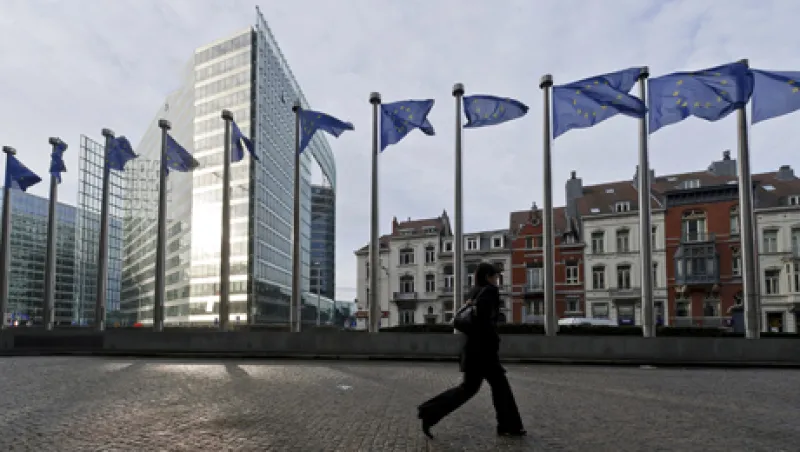It looks like our 5Q with the TABB Group’s Miranda Mizen, in which she discussed ETFs making rather than mirroring market volatility, was right on the money, based on a new “green” paper put out by the European Commission. The paper is designed to elicit public comments on potential regulatory action.
As FTAlphaville pointed out on Tuesday, there is considerable leverage being used in ETFs, so much so, in fact, that European financial regulators consider them part of the so-called shadow banking system.
According to the EC paper, published on Monday, the Financial Stability Board, a group of finance ministers and central bank governors established in 1999 by the G20 (or G7 at the time), has identified “a possible mismatch between liquidity offered to ETF investors and less-liquid underlying assets.”
And the paper goes on to cite possible “liquidity disruptions” stemming from this, citing concerns about “the quality of collateral provided in cases of securities lending and derivatives [swap] transactions between ETF providers and their counterparties and conflicts of interest where counterparties in these transactions belong to the same corporate group.”
Some heavyweight academics dispute the claim that ETFs cause rather than reflect market volatility. As Phillip Phan, dean of the Johns Hopkins Carey Business School, told Institutional Investor last January, “Because they comprise portfolios of underlying securities, they do not actually move the market by virtue of their being traded, actively or otherwise.”
Also, Mizen’s research that finds a majority of buy-side investors expressing the opposite view is hardly definitive. It also encompassed other types of “passive” funds, as Mizen was careful to point out.
But the regulators are clearly looking at ETFs as well as other elements of shadow banking in proposing curbs on this obscure corner of finance, for fear that unregulated sources of financial leverage will produce another crisis.
Shadow banking, the paper notes, can pose “potential threats to long-term financial stability.” It goes on to explain that “operations circumventing capital and accounting rules and transferring risks outside the scope of banking supervision played an important role in the build-up to the 2007–2008 crisis.”
Unfortunately, the paper does not spell out what it would do to rein in ETFs, or at least the use of unregulated leverage in connection with them. But if the regulators are serious, their unbridled growth could be in for a slowdown.






